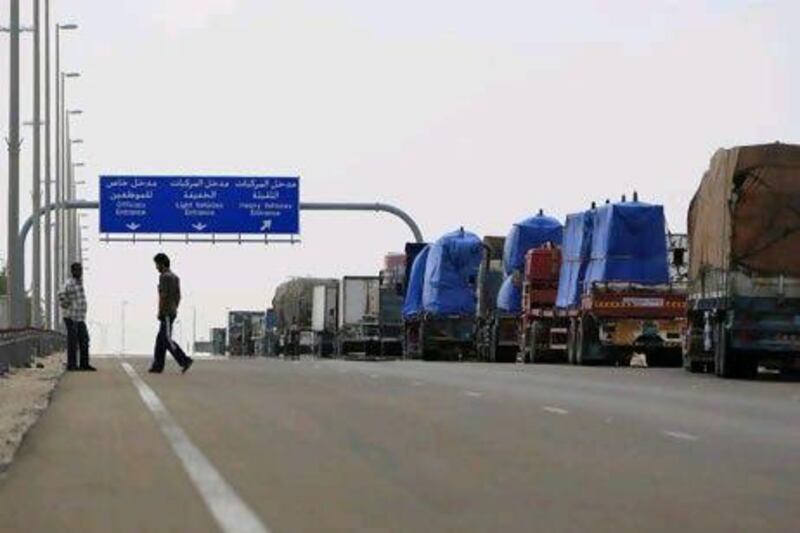Plans to use private financing to develop big infrastructure projects may be set back years if Abu Dhabi scraps the concept to build the country's largest road, construction executives said yesterday.
More Business news: Editor's pick of today's headlines
Last Updated: May 24, 2011
Torch buyers upset at changes A group of buyers in the world's tallest residential tower are in a dispute with the developer. Read article
Abu Dhabi aims to build new motorway The bidding process has begun for a second major expressway to link Abu Dhabi and Dubai. Read article
Industry Insights // Dubai's Swiss Cheese 0-14 building proves to be eco-friendly The 0-14 tower in Dubai's Business Bay was designed to stand out, but it's surprised its own architects by proving to be an energy-saving phenomenon. Read article
LinkedIn sparkles but may flatter to deceive LinkedIn debuted on the New York Stock exchange last week, but is it worth the share price? Read article
[ Back to business ]
The Abu Dhabi Department of Transport confirmed last week it was re-evaluating plans to use a public-private partnership (PPP) to build the 327km Mafraq-to-Al Ghweifat Highway to Saudi Arabia.
The Dh10 billion (US$2.72bn) project, which has been in development for three years, is considered a test case for using PPP on large-scale infrastructure projects. If the project does not go forward as a PPP, construction companies would reconsider before participating in similar projects, executives said during the Arabian World Construction Summit in Abu Dhabi yesterday.
"It depends on the outcome of the first one on how we will behave in the next one," said Gerhard Urschitz, a director of international projects for Germany's Strabag, one of the finalists to build the road. "As we see from the timeline alone, there has to be some improvement."
Companies bidding for the project spent millions of dirhams developing detailed plans, said Mr Urschitz. "We can't go through this whole project and then in the end they say, 'we'll see what we do.'"
Another executive, who asked not to be identified, said the prospects for using PPP to build infrastructure in Abu Dhabi would "probably be set back five years" if the road project did not go through as a partnership deal.
PPP is a popular model in the UAE for building power and water projects, as well as schools and hospitals. But it is a relatively new concept for infrastructure projects.
In a public-private partnership the builders typically shoulder the initial costs of construction.
The government client then pays the contractor incrementally to build and maintain the project over a period of time, usually 20 to 30 years.
A PPP saves a government from having to finance the project directly and provides the builder with incentives to deliver the project on time and on budget. The partnerships are viewed as an alternative way for Abu Dhabi and other regional governments to pay for infrastructure projects worth billions of dirhams in the pipeline.
But PPP deals are complex and often call for a government to relinquish control over the project. They can also be more expensive, requiring outside financing.
There has been no official word on why the Abu Dhabi Government is reconsidering PPP for the Mafraq motorway. But construction executives familiar with the deal say government officials have baulked at the cost of the project.
Executives described the deal as "stalled" and "in limbo" during a forum focusing on PPP deals yesterday.
"There is no doubt if PPP structure is abandoned [for Mafraq] it will have a negative impact on people looking to procure PPP," said David Greenhalgh, the projects director in the Middle East for Mott MacDonald, a contractor. "It's losing confidence in the marketplace."
The road may have been "too big a project" for Abu Dhabi's initial foray into an infrastructure PPP, Mr Greenhalgh said
But PPP will remain a viable option for many projects in the UAE, especially in Dubai where the Government there is looking for alternative financing plans, executives said. Dubai is reported to be developing a framework law for future PPP projects.
"Although certain sectors have not developed as well as we would have liked, other sectors have developed well," Matt Tate, the senior vice president of the ADCB Macquarie Infrastructure Fund, told the conference.





